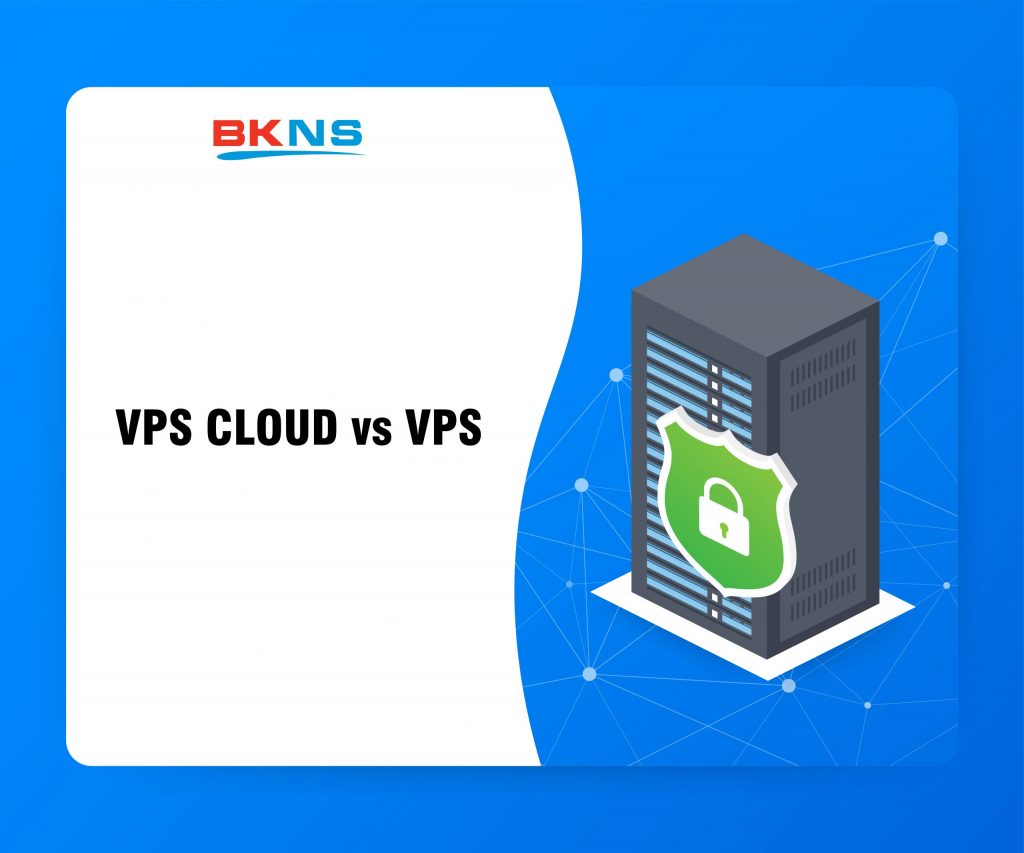In the field of website hosting today, there are many diverse service packages that customers can choose for their website. However, there are some service packages that are easy to confuse users. The most noticeable ones are Cloud VPS and regular VPS. So what is the difference and how to distinguish between these two services? Together BKNS Discover now!
VPS Cloud and VPS

VPS Cloud and VPS are 2 different concepts.
VPS Cloud
VPS Cloud is a cloud virtual server service. As the name implies, VPS Cloud is operated on a cloud computing platform. It is a combination of many servers connected to each other. This technology allows instant access to an unlimited supply. And the cost of the service depends on the monthly usage of CPU, RAM, storage and bandwidth resources. You don't have to worry about RAM or CPU and if the server gets hacked or virus, your data won't be affected either. Capable of scalability improves capacity.
VPS
VPS is also a virtual server service. But unlike VPS Cloud, VPS works on a physical server. When a problem occurs on the physical server, all VPSs will be affected. Besides that, the resource upgrade will be limited due to the dependence on the resources of the physical server.
Similarities between VPS Cloud and VPS

Comparing VPS Cloud with VPS makes it easy for us to choose the right service
Both are website hosting services. Whenever a user wants to access the website, their browser will send a request to the server and it will transfer the necessary files over the internet to their computer.- Both services are virtual servers that function like a separate server. The service provider will install the virtualization layer on top of the server's operating system (OS). This layer divides the server into different parts and separates each VPS separately. Isolate the resources of one VPS from another VPS in the same physical system.
- Both services operate as shared resources from the host server.
- There are resources, memory, hard drive,…. individual.
- The price is higher than Shared Hosting service.
Difference between VPS Cloud and VPS
| content | VPS | VPS Cloud |
| Communication | VPS works based on the resource allocation method of a physical server. | VPS Cloud operates on a cloud computing system. A hosting platform that combines many physical servers on one system. |
| Ready | When a physical server crashes, all VPSs on that server will be affected. | When a physical server in the system crashes, the data on it will immediately move to another physical server on the same system. Guaranteed uptime up to 99.9%. |
| Extend | Scalability is limited due to dependence on the resources of the physical server. | Unlimited scalability. Users can upgrade at any time without resource limitation and without affecting running services. |
| Security capabilities | Same. | Same. |
| Cost | Higher than Hosting but slightly lower than VPS Cloud. | Slightly higher than normal VPS. |
| Fit | Suitable for small and medium businesses. | Suitable for businesses that are growing and need to expand resources in the future. |
Conclude
Today, businesses often choose VPS Cloud because of its availability and stability. Besides, VPS is the cost optimization between Hosting and Server. Hopefully through this article, you can choose the right web hosting service for your business model.
If you do not know any reputable VPS Cloud service provider, you can refer to the following providers:





Post a Comment
Post a Comment